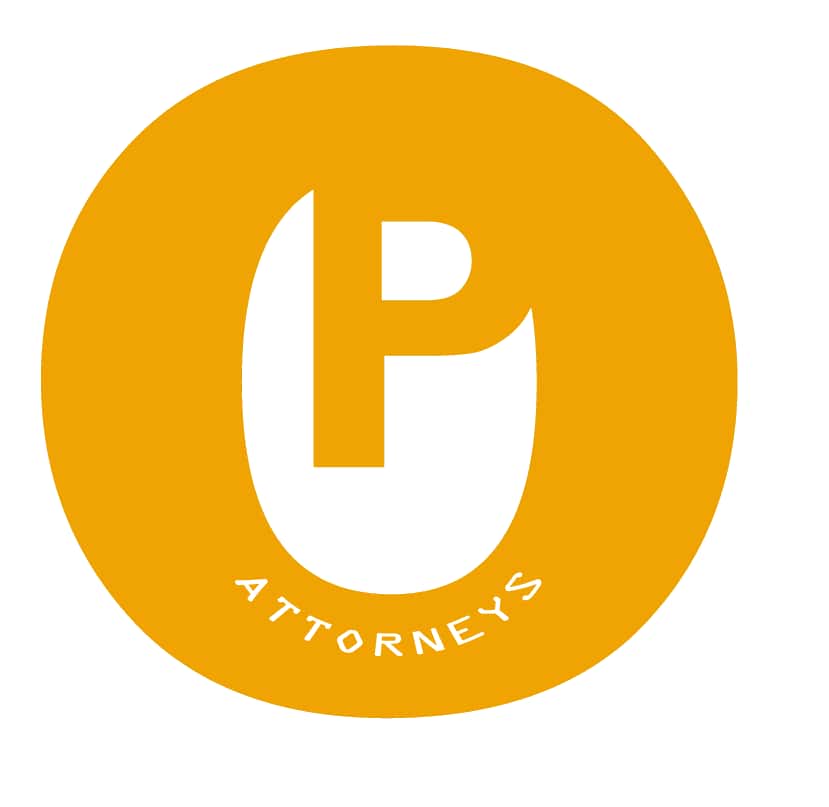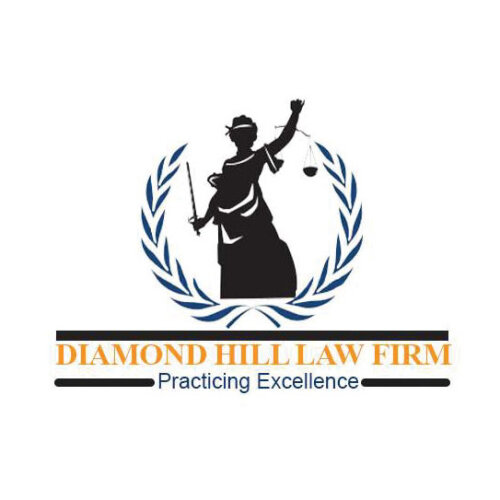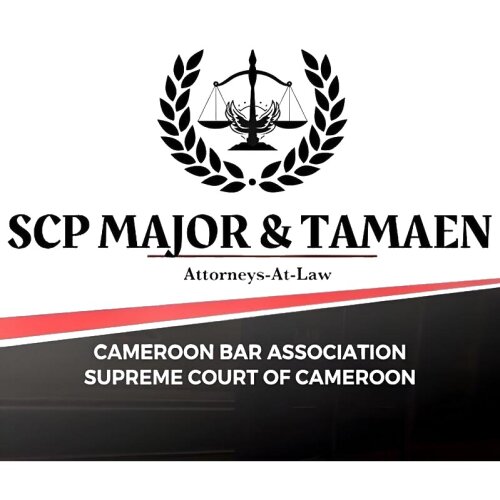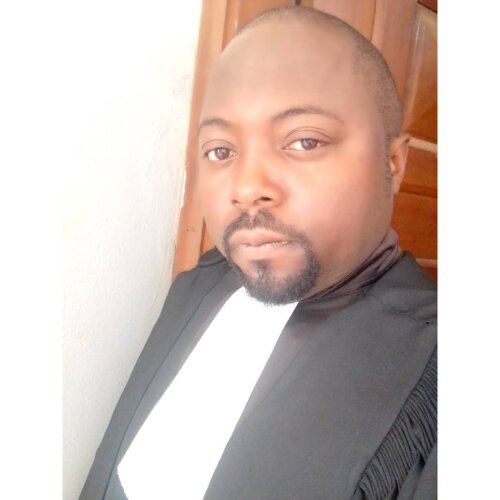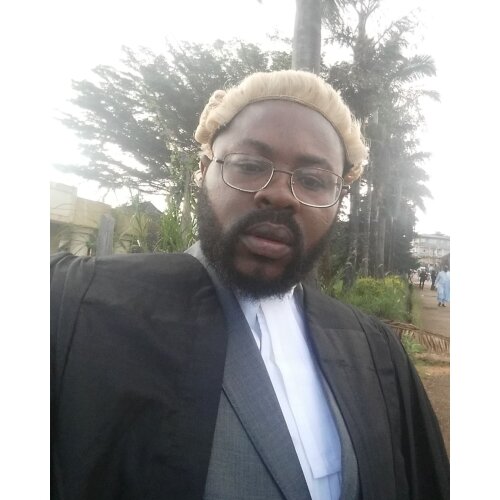Best Mining Law Lawyers in Cameroon
Share your needs with us, get contacted by law firms.
Free. Takes 2 min.
Or refine your search by selecting a city:
List of the best lawyers in Cameroon
Legal guides written by CHI & Partners Law Firm:
- Ship Registration in Cameroon
About Mining Law in Cameroon
Mining Law in Cameroon refers to the legal framework that governs the exploration, extraction, processing, and management of mineral resources within the country. Cameroon is endowed with a wide range of mineral resources, including gold, diamonds, bauxite, iron ore, cobalt, and limestone. The sector is regulated primarily by the Mining Code, which outlines the rules and procedures for obtaining mining rights, environmental protection measures, and the obligations of license holders. The law aims to ensure sustainable development, promote local participation, and attract both local and foreign investment in the mining sector.
Why You May Need a Lawyer
There are many circumstances in which individuals or companies may require legal assistance within the mining sector in Cameroon. Common situations include:
- Applying for or renewing mining titles or permits, such as exploration or exploitation licenses
- Negotiating mining contracts or joint venture agreements with local or foreign partners
- Understanding compliance obligations related to environmental and social regulations
- Resolving land ownership or land use disputes with local communities or the government
- Managing conflicts related to surface rights and compensation for affected persons
- Dealing with issues involving government agencies, taxes, or royalties
- Pursuing or defending litigation arising from mining activities
- Handling mergers, acquisitions, or divestments of mining projects
- Responding to allegations of illegal mining or non-compliance with safety standards
- Ensuring adherence to anti-corruption and anti-money laundering regulations
A lawyer experienced in Mining Law can help you avoid costly legal mistakes, navigate bureaucratic procedures, and ensure that your mining operations are legally compliant.
Local Laws Overview
The Cameroonian mining sector is primarily regulated by Law No. 2016/017 of 14 December 2016, referred to as the Mining Code. Some key aspects include:
- Mining Titles and Rights: The law establishes different categories of mining titles, including research permits, small and large-scale mining licenses, and quarry authorizations. Each permit has its own application process, requirements, and duration.
- Ownership: The State is the sole owner of mineral resources. Private actors must obtain mining titles from the Ministry of Mines, Industry and Technological Development (MINMIDT).
- Environmental Protection: All mining operations are subject to mandatory environmental and social impact assessments (ESIA) before work commences. Operators must rehabilitate sites and respect environmental regulations.
- Local Content: The Code encourages the inclusion of local workforce, goods, and services in mining projects to foster local economic growth.
- Taxation and Royalties: Holders of mining rights are subject to taxes, royalties, and fees as specified by the Mining Code and other relevant tax laws.
- Dispute Resolution: Disputes arising from mining activities can be resolved through legal proceedings or arbitration, as stipulated in contracts or agreements.
- Community Rights: The law provides for the compensation of individuals and communities affected by mining activities, particularly with respect to land use and livelihoods.
Frequently Asked Questions
What is the process for obtaining a mining license in Cameroon?
Applicants must submit a detailed application to the Ministry of Mines, Industry and Technological Development. The process involves providing technical and financial documentation, conducting environmental impact assessments, and meeting legal and fiscal requirements.
Are foreigners allowed to invest in mining in Cameroon?
Yes, foreign individuals and entities can obtain mining rights and invest in Cameroon’s mining sector, subject to compliance with local laws and regulations.
What are the main taxes and royalties payable by mining companies?
Mining companies are required to pay surface rents, mining royalties based on production, corporate income tax, and other fees outlined in the Mining Code and the General Tax Code.
Do local communities have any rights when mining operations take place?
Yes, local communities are entitled to compensation for land use and disruption, and the law encourages benefit sharing, local employment, and respect for traditional rights.
How long does a typical mining license last?
Exploration permits are usually valid for three years and can be renewed, while exploitation licenses may last up to 25 years, depending on the scale and type of mining operation.
What environmental obligations do mining companies have?
Companies must conduct environmental and social impact assessments before starting operations, implement mitigation measures, and rehabilitate mined areas after use.
Can a mining license be transferred or sold?
Transfers of mining rights are permitted but require prior approval from the relevant government authorities and adherence to prescribed procedures.
What happens if someone operates a mine without proper authorization?
Illegal mining operations are subject to penalties, including fines, closure of the mine, confiscation of minerals, and potential criminal prosecution.
Are there restrictions on the use of foreign labor in the mining sector?
The law encourages the employment of Cameroonian nationals. The use of foreign labor is allowed, but requires proper work permits and should only be for positions where there are no qualified local candidates.
What role do government agencies play in regulating mining?
The Ministry of Mines, Industry and Technological Development is the primary regulatory authority, overseeing licensing, compliance, and sector development. Other agencies, such as the Ministry of Environment, play key roles in monitoring environmental aspects.
Additional Resources
For more information or assistance regarding Mining Law in Cameroon, consider reaching out to the following resources:
- Ministry of Mines, Industry and Technological Development (MINMIDT)
- Chamber of Mines Cameroon
- Ministry of Environment, Protection of Nature and Sustainable Development
- Cameroon Bar Association - for referrals to qualified mining law attorneys
- Cameroon Geological and Mining Research Institute (IRGM)
- Local NGOs focusing on environmental protection and community rights
Next Steps
If you need legal assistance in the field of Mining Law in Cameroon, begin by identifying the specific nature of your query, such as licensing, compliance, or dispute resolution. Gather all necessary documents and information related to your case. Consult a qualified lawyer or legal expert who specializes in Mining Law to assess your situation. You may also contact relevant government agencies for initial guidance. Taking these proactive steps will help ensure that your interests are protected and that your mining activities fully comply with Cameroon's legal requirements.
Lawzana helps you find the best lawyers and law firms in Cameroon through a curated and pre-screened list of qualified legal professionals. Our platform offers rankings and detailed profiles of attorneys and law firms, allowing you to compare based on practice areas, including Mining Law, experience, and client feedback.
Each profile includes a description of the firm's areas of practice, client reviews, team members and partners, year of establishment, spoken languages, office locations, contact information, social media presence, and any published articles or resources. Most firms on our platform speak English and are experienced in both local and international legal matters.
Get a quote from top-rated law firms in Cameroon — quickly, securely, and without unnecessary hassle.
Disclaimer:
The information provided on this page is for general informational purposes only and does not constitute legal advice. While we strive to ensure the accuracy and relevance of the content, legal information may change over time, and interpretations of the law can vary. You should always consult with a qualified legal professional for advice specific to your situation.
We disclaim all liability for actions taken or not taken based on the content of this page. If you believe any information is incorrect or outdated, please contact us, and we will review and update it where appropriate.
Browse mining law law firms by city in Cameroon
Refine your search by selecting a city.







